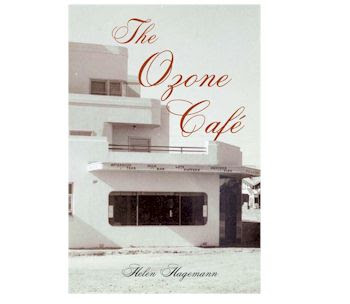Problems for Women
When it comes to our writing tradition, it has relatively only been, (& referring to Virginia Woolf 's A Room of One's Own), a matter of eighty years since women have been allowed a sense of equality as writers. We are allowed into university libraries, we no longer hold back in relation to our female psyche. We have established the objectivism of the female through political correctness, and no subject matter is diminished by its inclusion (i.e the domestic). We no longer hide in attics (like the Bronte sisters), are taken seriously beyond the word "scribbler", and no longer experience the undermining of subjectivity re women's health issues/"hysterical" labelling - as with Charlotte Perkins Gilman's The Yellow Wallpaper. Authors of fiction and non-fiction find success with publishers, embrace all genres, are brilliant at crime writing, literary works, historical romance, to name only a few. However, these are established genres and are formulaic. And why would a female author want to change this tradition.
When it comes to the tradition of poetry for women, there are problems. Firstly, their is no tradition of women's poetry per se. If we look back in time to Wordsworth, Coleridge, Byron & Shelley we find an overarching predominence of male poets, published with collections tucked neatly under their smoking jackets. One could argue, yes, women were writing poetry at that time, but 19thC poets such as Emily Dickenson, Christina Rosetti, & Elizabeth Browning, were not published in their lifetime.
Therefore, when we discuss/argue/critique traditional poetry (& its various forms handed down), we are looking at a page where poetry is male orientated. In other words, heavily influenced by their psyche, gender, perspective, views, beliefs, attitudes, esp. attitudes towards women. Consider here the male poet's muse, that inspirational female spirit as similar as Shakespeare's Ariel to Prospero. Where does this leave the woman poet? Certainly not part of the 19thC tradition of poetry, certainly marginalised and certainly negated under the label of "woman" historically as lack, deficient, and subordinate in the position of mastery. (Luce Irigaray, - The Power of Discourse and the Subordination of the Feminine).
Therefore, when the modern woman comes to poetry, what she finds is the traditional "poetry of men". Not that that is such a bad thing. How we love the imagery of Edgar Allan Poe's Raven "knock, knock, knocking at the door" or the Falcon in Gerald Manly Hopkins' The Windhover. But this doesn't alter the fact that there has been a minority voice gone unheard.
Poets NEW in the mail!
2 years ago
















0 comments:
Post a Comment